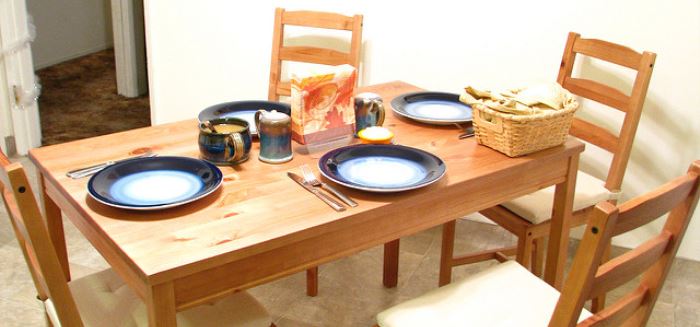In preparation for Thanksgiving Day last November, there were dozens of articles and interviews concerning the challenges of sharing a meal—a cordial meal—with relatives and friends holding wildly differing political views. We are now in the season of Easter, but that challenge remains. I’ve been wondering what it might have to do with stewardship and the resurrection, so I’ve invited several wise writers to share their wisdom in a short series on Stewarding Difficult Conversations.
This week, Luther Seminary’s own Mary Hess, professor of Educational Leadership, reflects on what it means to break our hearts open in these difficult times.
Yours truly,
Adam Copeland, Center for Stewardship Leaders
Breaking our hearts open in the midst of discord
Mary E. Hess
I cannot remember any other time when there has been such heightened and passionate awareness of the differences and disagreements which divide us in the United States. My heart breaks just a little bit further every day as the drumbeats of dispute persist. In the midst of multiple conflicting versions of reality, in the heart of the “already, not yet” into which the Christ invites us, Parker Palmer’s question resonates with me: Is my heart being broken open, or broken into shards?
I believe that the Holy Spirit is inviting us into being broken open.
The joy of the resurrection offers hope, energy, and peace with which we can ground ourselves for the difficult conversations taking place all around us. We need to keep in mind three things as we walk this pathway.
First, in the challenging way he did with the disciples on the road to Emmaus, Jesus may appear to us at any moment.
Second, we need to practice the kind of deep hospitality which “breaks us open,” as in the breaking of the bread.
And third, we need to trust that God has planted in our hearts the resilience and hope to endure that breaking open.
Evidence is all around us, even amid commercial popular culture, that people are longing for connection, for a recognition of how much we share, rather than all that divides us. Give yourself a moment to watch this television commercial about eating together, or this one about all that connects us and allow them to lighten your spirit.
Words matter. But it is also true that we can listen and not act—that is, we can differentiate what it means to respect someone else and how they arrived at their position, and yet not think that that respect vitiates our own commitments and beliefs.
Remember the eighth commandment: thou shalt not bear false witness. This is a deep and difficult imperative in the world we live in, but all the more necessary. Here are Robert Kegan’s reminders for stewarding our witness and learning in the midst of the polarization in which we are immersed:
- There is probable merit to my perspective.
- My perspective may not be accurate.
- There is some coherence, if not merit, to the other person’s perspective.
- There may be more than one legitimate interpretation.
- The other person’s view of my viewpoint is important information to my assessing whether I am right or identifying what merit there is to my view.
- Our conflict may be the result of the separate commitments each of us hold, including commitments we are not always aware we hold.
- Both of us have something to learn from the conversation.
- We need to have two-way conversation to learn from each other.
- If contradictions can be a source of our learning, then we can come to engage not only internal contradictions as a source of learning but interpersonal contradictions (i.e., “conflict”) as well.
- The goal of our conversation is for each of us to learn more about ourselves and the other as meaning makers.
There are many helpful resources available for tending this kind of stance in a congregation or other community. The Art of Hosting, the Respectful Conversations Project, and the Public Conversations Project all offer free guidebooks, exercises, and practical helps for inviting people into this kind of learning stance.
God has planted love deep in our hearts. We need only to allow ourselves to be broken open into that love.
Read the rest of the Stewarding Difficult Conversations series here:
Tapping Into Difficult Conversations by Keith Anderson
Fear and Anger Unearthed Through Dialogue by Carly Cubit
For More Information
Mary E. Hess is Professor of Educational Leadership at Luther Seminary. During 2016-2017 she holds the Patrick and Barbara Keenan Visiting Chair in Religious Education at the University of St. Michael’s College in the University of Toronto.
Books referenced above: Palmer, Healing the Heart of Democracy, Jossey-Bass, 2011; Kegan & Lahey, How the Way We Talk Can Change the Way We Work, Jossey-Bass, 2001.



